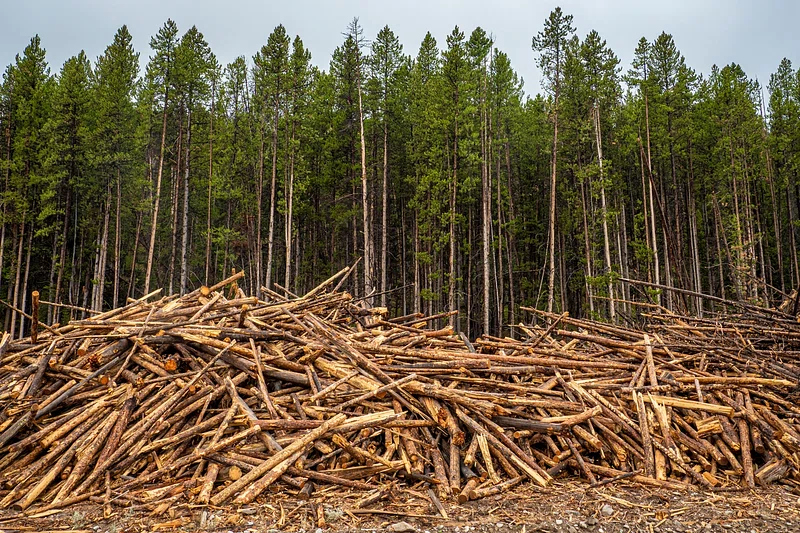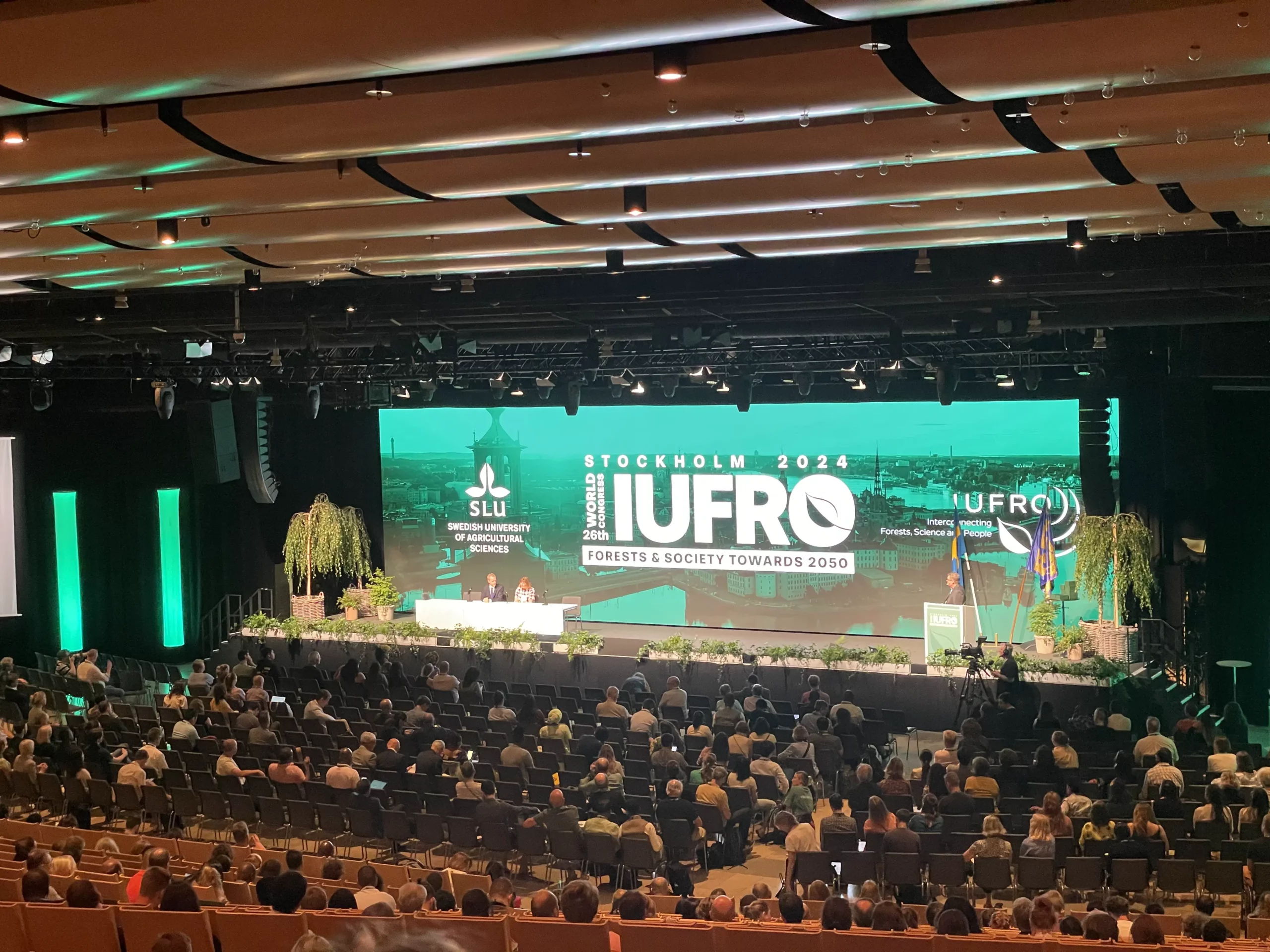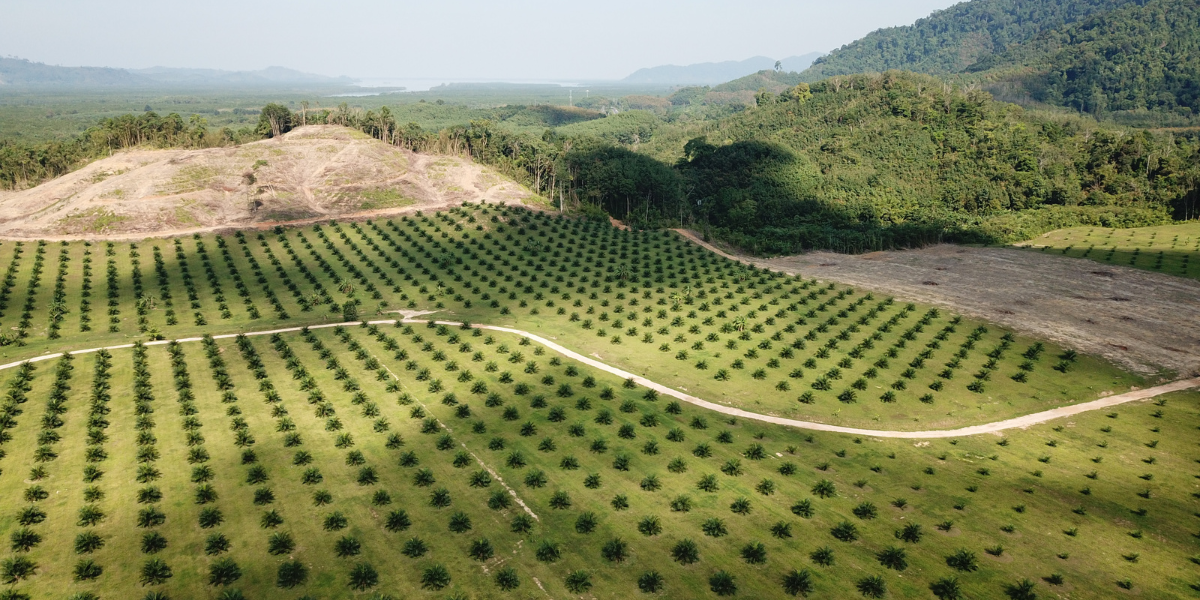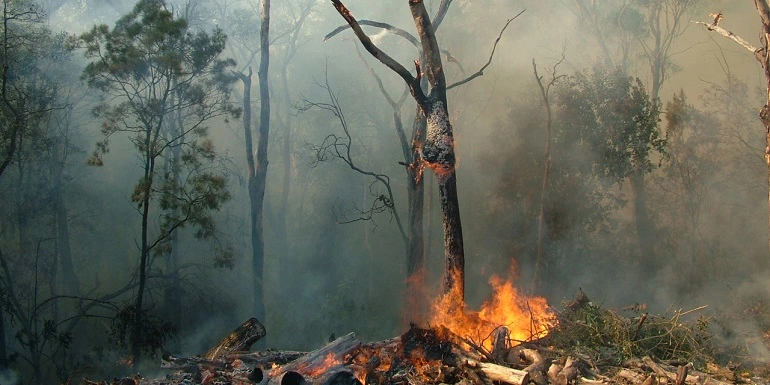Over 50% of the world’s tropical forests have been destroyed since the 1960s, causing a significant change in landscapes. A large portion of the land that is now farmland was once covered in forests. Today, the most significant amount of deforestation occurs in tropical rainforests. This has dramatic consequences, such as increasing climate crisis and biodiversity loss.
Deforestation and forest degradation
Deforestation occurs when forests are converted to non-forest uses, such as clearing land for agriculture and road construction. Forest degradation happens when forest ecosystems lose their capacity to provide essential goods and services to people and nature. These two phenomena are two sides of one coin.
Why does deforestation occur at such a fast pace?
One of the causes of deforestation in the tropics is “slash-and-burn” agriculture: farmers burn large swaths of forest with this agricultural method, allowing the ash to fertilize the land for crops. This leads to another cause of deforestation, that calls into question the European Union: the clearing of forest land to make way for the production of commodities such as soy, cattle, palm oil, wood, cocoa, coffee, and rubber– the so-called Forest Risk Commodities. These are imported and traded also in Europe.
The responsibility of the European Union
Between 2005 and 2018, the EU’s imports of agroforestry commodities caused the loss of 2.7 million hectares of forest, an average of 208,000 hectares per year. According to a study by Pendrill (2022), the average deforestation caused by soybeans and oil palm imports accounted for 58% of the EU’s embedded deforestation – 33% from soybeans and 25% from oil palm.
Within the EU, five countries (Germany, Spain, Italy, Netherlands and France) are responsible for 70% of deforestation linked to importing and consuming agroforestry goods.
EUDR: a new regulation to tackle embedded deforestation
On December 6th, 2022, the EU reached a pivotal agreement on the Deforestation-free Regulation. The law aims to prevent companies from introducing, exporting and trading commodities associated with deforestation and forest degradation into or out of the EU market. The Regulation wants to reduce the European Union’s contribution to deforestation, forest degradation, greenhouse gas emissions and global biodiversity loss.
The law became effective on June 29th 2023. The EMMA4EU project aims to fill the gaps in knowledge and skills necessary to comply with the EUDR. It will do so by bridging different disciplines and sectors in forestry, agriculture and business & commerce and connecting their key actors through an Alliance.




